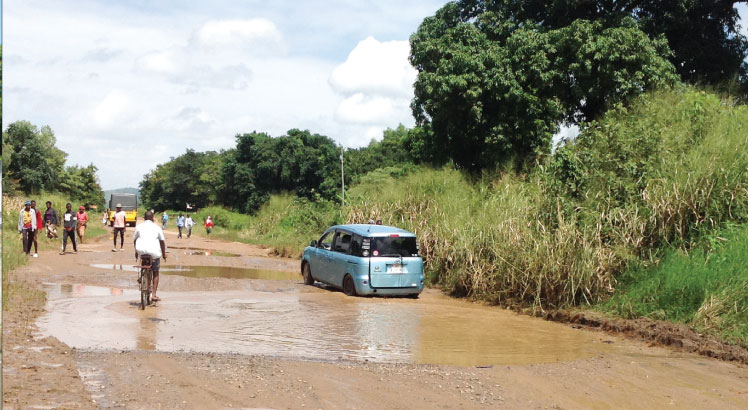Roads earn overseas bad reputation
United States and United Kingdom governments have condemned the country’s road networks as hazardous and accident prone, threatening foreign investment and tourism, Nation on Sunday can reveal.
The poor assessments are found on their websites as part of travel advisories.

Erratic fuel availability and carjacking are more of the warning to potential investors and tourists.
“Driving in Malawi can be hazardous and there is a high rate of road fatalities. Potholes, animals, abandoned vehicles and cyclists can cause serious accidents, as can vehicles travelling at night without lights. Emergency services are basic,” reads https://www.gov.uk/
The review was updated on February 12 2024, however, the UK says; “it is still current at May 23 2024.”
“Armed carjacking is a risk, especially for drivers of four-wheel-drive vehicles. Lock your doors and keep windows closed. Do not offer lifts to strangers and look out for obstructions in the road ahead.
“There are frequent fuel shortages in Malawi and there can often be long queues. Do not assume fuel will be available on your route. Plan ahead to make sure you can reach your destination,” reads the website.
In response to our questionnaire on Thursday, British High Commissioner Fiona Ritchie backed the reviews.
“Our travel advice is based on objective assessments of the risks to British nationals. These assessments are made by drawing on expert sources of information available and local knowledge from our High Commission in Lilongwe,” she said.
Ritchie said their travel advice pages contain information and advice about common recurring issues.
“We make decisions on a case-by-case basis on whether it is appropriate or necessary to update our travel advice about a specific incident or event,” she said. She added that they consider a range of factors, including whether the issue is out of the ordinary and/or if British nationals have been, or are likely to be affected.
The US Government observes that most roads lack sidewalks, forcing pedestrians and livestock to use the roadways.
Its advisory reads: “Secondary roads are poorly lit, in disrepair and may be impassable to all, but four-wheel drive vehicles during the November-April rainy season.
“Motor vehicle accidents are the most common cause of death among travellers to Malawi. Safety hazards include the lack of road shoulders, potholes, pedestrians, bicyclists, and livestock.”
It alerts travellers on defensive driving and avoiding travelling outside cities at night because road support networks for stranded drivers do not exist.
The US also warns a similar fuel warning as the UK.
In a response to our questionnaire, US Embassy public affairs officer Namita Biggins said: “We have no higher priority than the safety and security of US citizens overseas.
“We use a wide range of tools to communicate clear, timely, and reliable safety and security information that helps citizens make informed decisions about travel overseas.”
She said travel advisories are issued for every country giving a description of risks and providing clear actionable recommendations for their citizens.
National Police spokesperson Peter Kalaya acknowledged that poor roads contribute to traffic accidents.
Queried, however, why accident reports rarely highlight that as reasons, he said they focus on the most critical causes.
“We assess contributing factors and focus on over-speeding. This does not mean there were no other factors,” he said.
US and UK citizens make about 150 million foreign trips, according to internet sources, making it a potential market for the country’s tourism industry.
The UK Office on National Statistics, for example, said 71 million Britons travelled abroad in 2022 spending £58.5 billion.
Minister of Tourism Vera Kamtukule had not responded to our questionnaire as we went to press yesterday.
While the Tonse administration has earmarked tourism alongside agriculture and mining dubbed ATM as key economic drivers, Mzuzu University-based economist Christopher Mbukwa fears the UK and US negative reviews could hurt tourism and wreck Foreign Direct Investment (FDI).
He said on Thursday: “It really depicts the sad reality of most of our roads and it is a huge concern for FDI and tourism boost in the country at a time when we need more forex inflows.
“Such reports affect the FDI and tourism. Both potential and current investors and tourists are afraid of patronising a country when country roads are in such conditions.”
Mbukwa said the country needs to scale up its efforts in road infrastructure development to overturn such negative assessments and attract investors.
“Having said that, I would like to appreciate the current efforts regarding roads that are under construction. There is need to sustain the momentum and ensure all key roads are maintained like what is happening on the North Corridor M1 road,” he said.






bok4fr